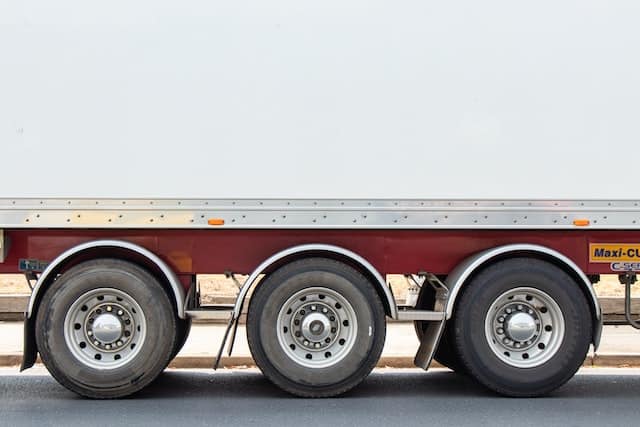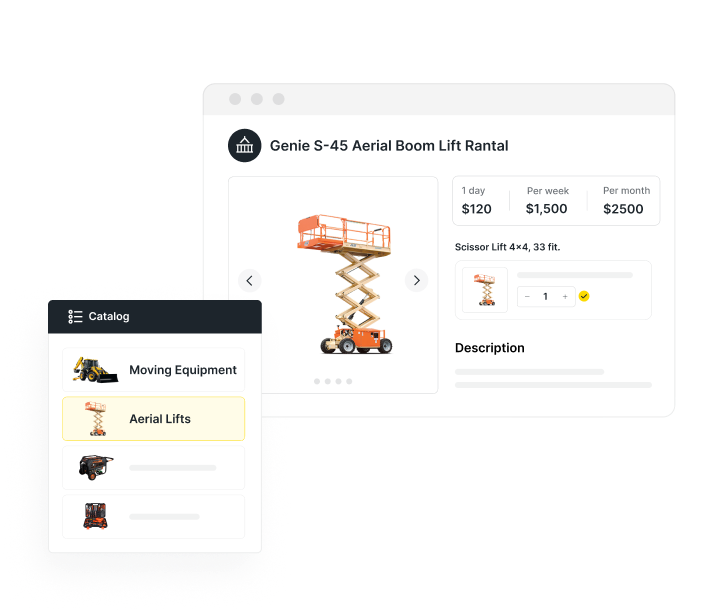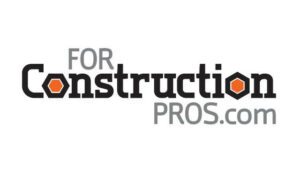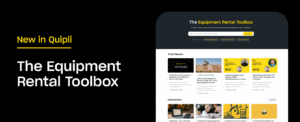As the name implies, utility trailers can come in handy. Even a pickup truck with a sizable bed may not be large enough or offer the convenient loading and unloading needed to meet the owner’s needs.
A utility trailer, however, easily hooks to the tow hitch and has a platform lower to the ground, making it easier to load and haul trash, furniture and appliances, lawn care equipment, smaller vehicles (motorcycles, jet skis, etc.), camping and sports gear, livestock, and more.
Utility trailers can be open or closed, depending on need, and having the right one can make any number of jobs easier.
Of course, they can be a rather expensive purchase for the average consumer or a business, ranging from several hundred to several thousand dollars.
Additionally, they take up valuable storage space when not in use. Many people would rather rent a trailer as needed and forego the expense and potential hassle of ownership.
If you’re looking to start a trailer rental business, you might be surprised to learn that entry costs aren’t astronomical. Your area could have a significant market for such rentals if you know which demographics to cater to.
With the right preparation, you’ll have the best chance to make your utility trailer rental business a success.
Learn as Much as You Can About the Trailer Rental Industry
The first thing you’ll want to consider before starting your rental business is what trailers are, what they’re used for, and what different kinds exist.
Start by researching different types of utility trailers and what they’re used for. Understand the costs, uses, benefits, and limitations of a range of products.
You also need to understand what individuals and businesses in your area would want to rent trailers for.
If you live in an agricultural area, moving livestock could be a significant market, whereas an upscale area might require a lot of yard maintenance, spurring rentals from local landscaping businesses.
If you live in an urban area with a lot of population turnover, you could get clients who are interested in moving furniture and appliances.
Consider your fee strategy — hourly rates, day rates, long-term rentals — and calculate how long it will take to recoup startup costs before turning a profit. Make sure to factor in overhead like registration and insurance, maintenance, and leasing costs for a storefront/storage, as well as any employees you may retain.
The list goes on, but understanding your products, expenses, potential income, and customer base are important initial considerations.
Evaluate Local Market Demand and Competition
Before getting into the specifics of how to start a trailer rental business, you need to research the local market and make sure there’s room for your business to thrive.
While a higher population could equate to higher demand, rural areas can also represent a significant market for utility trailer rentals, where they’re used to haul feed, livestock, farm equipment, and other supplies.
This is why market research is crucial. You need to determine not only who your customers might be but also the relative volume of demand. It may vary by season. You need to know these details to determine whether your business is viable.
Don’t forget that you might not be the only one interested in filling a demand for utility trailer rental. You need to do competitive research to find out how many other businesses offer similar products for rent.
You may have a lot of competition or a little, but when you see what others are offering, you could find an untapped niche and set competitive rates to build your business.
Determine How Much Starting Capital You Need to Launch Your Business
The highest potential upfront cost of starting this business is the utility trailers, which could range in price from about a thousand dollars for small open trailers to tens of thousands of dollars for a horse trailer. Remember that you can charge significantly higher rental fees for more expensive trailer types.
Generally speaking, if you purchase smaller open trailers, you could get your business off the ground with a handful of utility trailers for maybe $15,000 to $20,000. You might, for example, purchase six 5 ft x 8 ft open trailers at roughly $1,500 each, or about $9,000.
Don’t forget to factor in additional equipment rental costs like registration (if required in your state) and insurance.
Because trailers aren’t motorized, auto insurance may not be required. However, it’s always wise to insure your property against damage or theft. You could also require renters to take on liability or pay an additional fee for insurance coverage while the trailer is in their possession.
Add in the cost to lease a small business office with a one-year lease agreement and dedicated parking to store trailers. This cost will vary by location, of course.
You may not need employees in the beginning if you’re planning to run everything yourself, but you will need to factor in costs for a DBA: setting up a corporate structure (LLC or other), marketing, signage, office furniture, computers, software, and so on.
Choose a Business Name and Domain Name
Once you’ve completed the necessary research into the market and startup expenses, the next step in how to start a trailer rental business is to have a bit of fun.
Make a list of business and domain names that represent you, your business, and your location. Then check to ensure your preferred names and domain addresses aren’t yet in use before moving forward and establishing your DBA and website.
Create a Business Plan
A business plan is a document that maps out your research, goals, financing, intended operation, and all the steps you will take to succeed for your first one to two years in business, up to as many as five years of operation.
It should include items like:
- Executive summary
- Business description
- Market analysis
- Competitor analysis
- Services offered
- Pricing strategy
- Marketing strategy
- Funding sources
- Financial projections
This document isn’t just for your benefit; it also provides lenders with information about how you will make your business successful so they can decide whether they’ll lend you the startup capital you need. It must be comprehensive.
Register Your Business, and Register for Taxes
Before scheduling annual versus quarterly tax filings, you need to make sure your business is registered so you understand your obligations and can plan for the most favorable outcomes.
While a limited liability corporation (LLC) is the most common structure for this type of business, you could also set up a sole proprietorship, a general partnership, an S-Corp, or a C-Corp.
Before choosing, you’ll need to understand the requirements, benefits, and possible risks associated with each. You must also obtain an employer identification number (EIN) for banking and tax purposes.
Secure Funding
Funding for your business could come from a range of sources, including:
- Personal savings
- Contributions from a business partner, family, or friends
- Bank loans
- Small Business Association (SBA) loans
- P2P lenders
To qualify for a business loan from a bank or investor funding, you’ll need a range of documents, such as:
- Business plan
- Financial projection statements
- Personal tax returns
- Details of how you will use funding
- Details of your business and services
These display your research, competence, planning, and fitness to operate a successful business, as well as how you will use funding wisely and repay debts promptly. For a deeper look into loans, explore our equipment loan and finance calculator.
Create a Website
So much business is conducted online these days that you can’t afford to operate without a website. You can pay a professional designer to do it for you, but early on, you may want to manage it yourself to save money.
You’ll need a range of rental software solutions to do this, starting with management programs that allow you to track inventory and take online bookings. You’ll also want to optimize your website to drive targeted traffic, which will fall under your marketing budget.
Create a Marketing Strategy to Promote Your Trailer Rental Business
Marketing is all about increasing awareness of your business and compelling desired actions from potential customers (i.e., visiting your website, booking rentals, etc.).
If you have no background in marketing, you may want to hire professional help to create a sound local marketing strategy or a business launch campaign.
SEO: Bringing in Leads from Google Searches
Search engine optimization (SEO) is incredibly complex, but it has to do with efforts to ensure that online search bots recognize your website and rank you at the top of search engine results pages for relevant searches for businesses like yours.
Paid Search Marketing
Paid search marketing through programs like Google Ads can help you to increase your online exposure to target demographics.
Paid and Organic Social Media Marketing
If you have the time and you feel confident promoting through social media platforms (Facebook, Instagram, Twitter, and TikTok), you could devise your own strategies to gain an organic following.
If this is too slow for you, paid social media marketing may prove more effective.
Email Marketing
Sending emails to prospective customers, or even sending old-fashioned print flyers, could also be part of your strategy.
These efforts not only raise awareness among local customers but also allow you the opportunity to offer deals that increase interest and follow-through.
How to Build a Trailer Rental a Business to Last
There are several important steps to take when starting your trailer rental business, and you can’t skimp on software if you want to create a successful operation with room to grow and thrive.
If you’re starting a trailer rental business, it’s a smart idea to invest in the right software tools.
At Quipli, our advanced rental management software makes it easy to accept bookings, track rentals, manage inventory, and more.
To find out more about Quipli, book a demo with us any time.
Learn About Quipli’s Equipment Rental Platform










